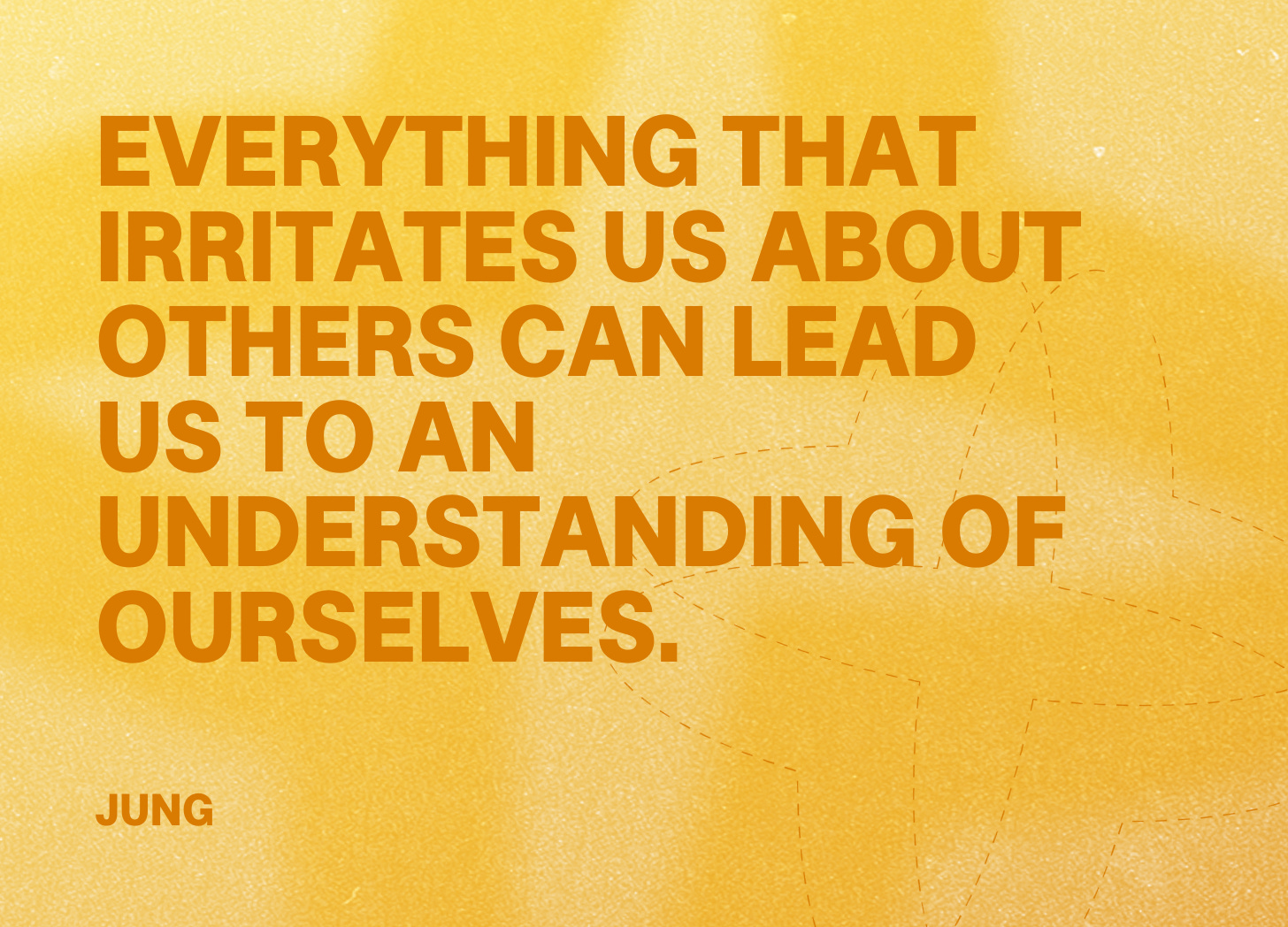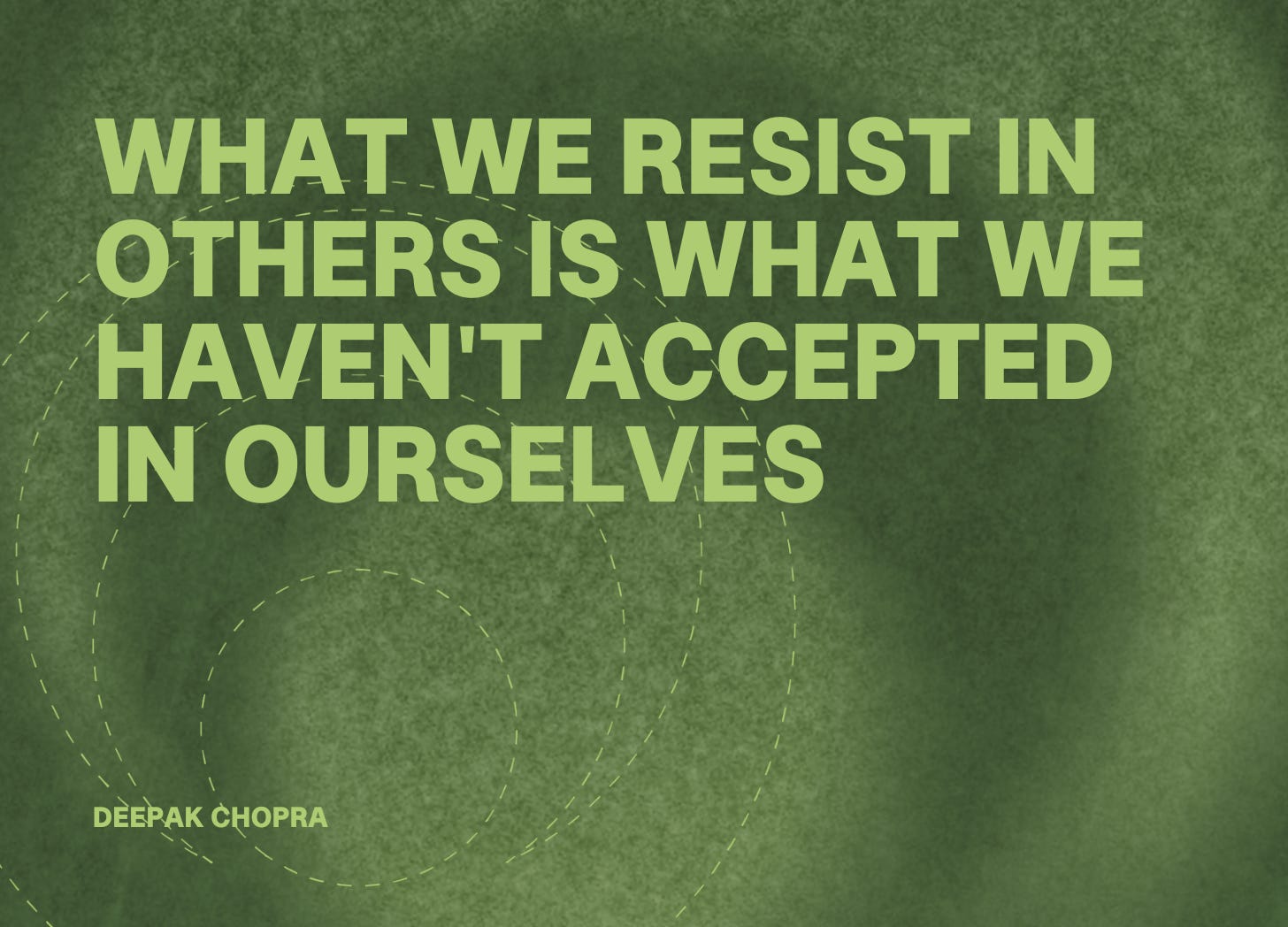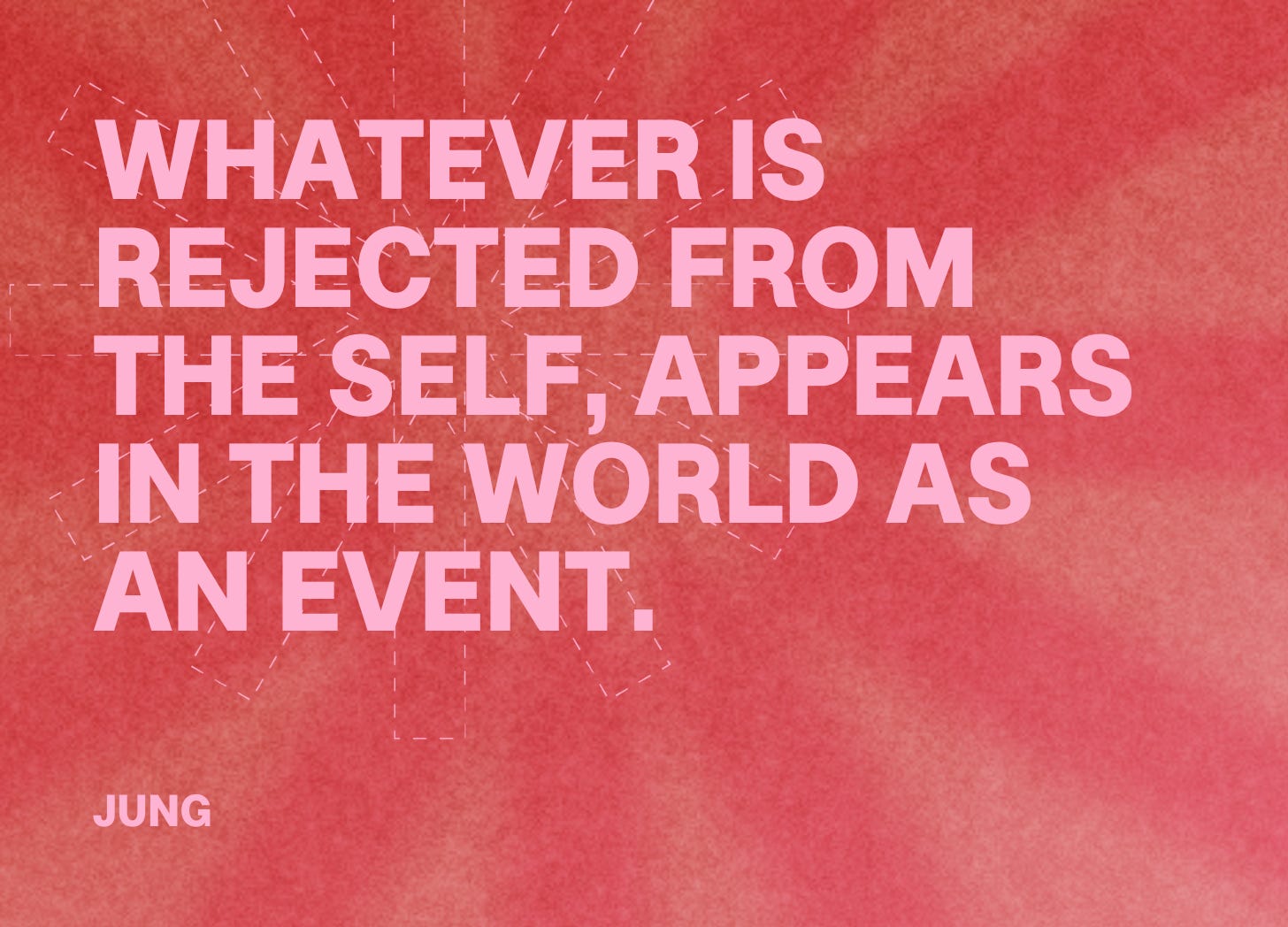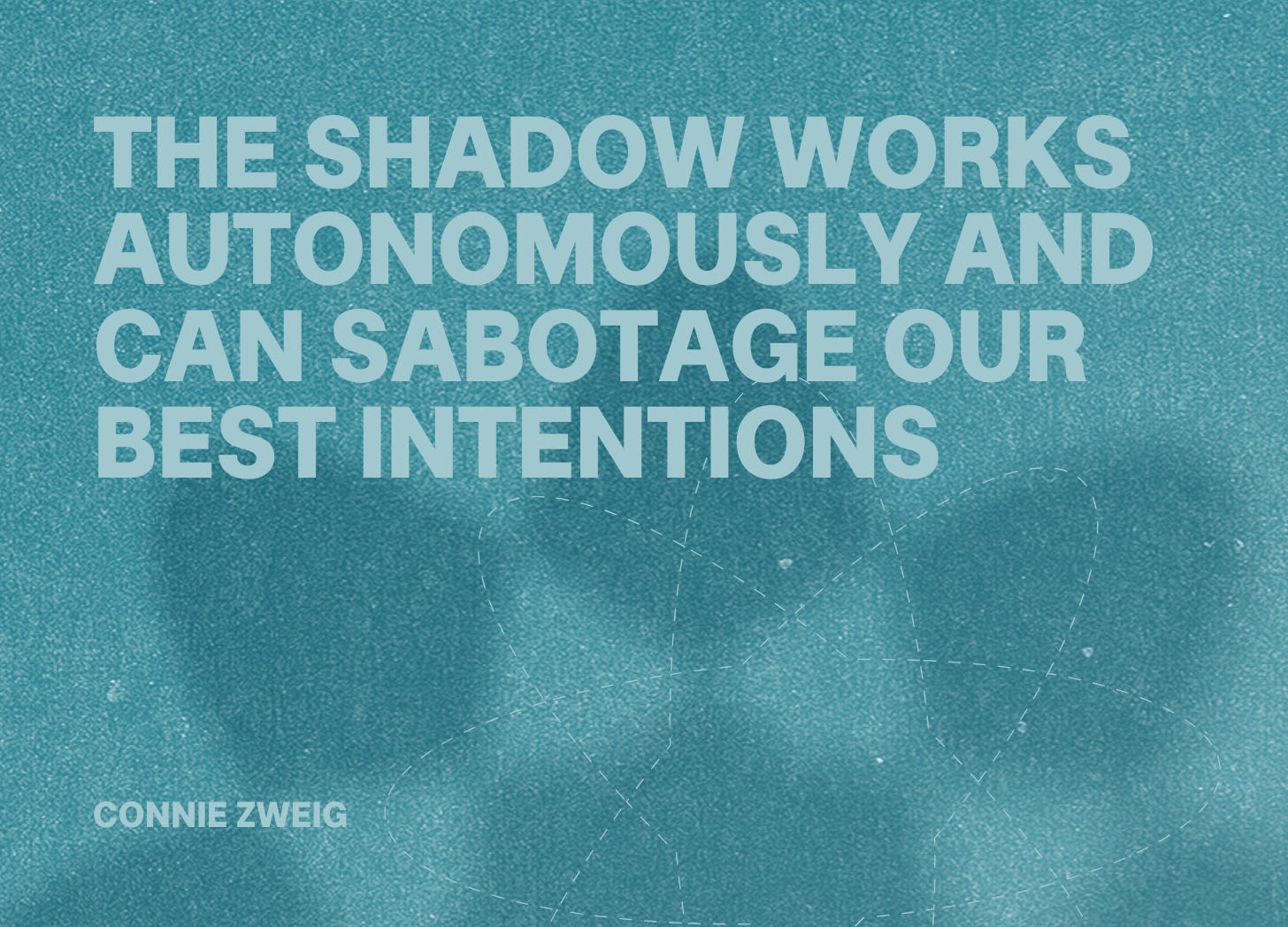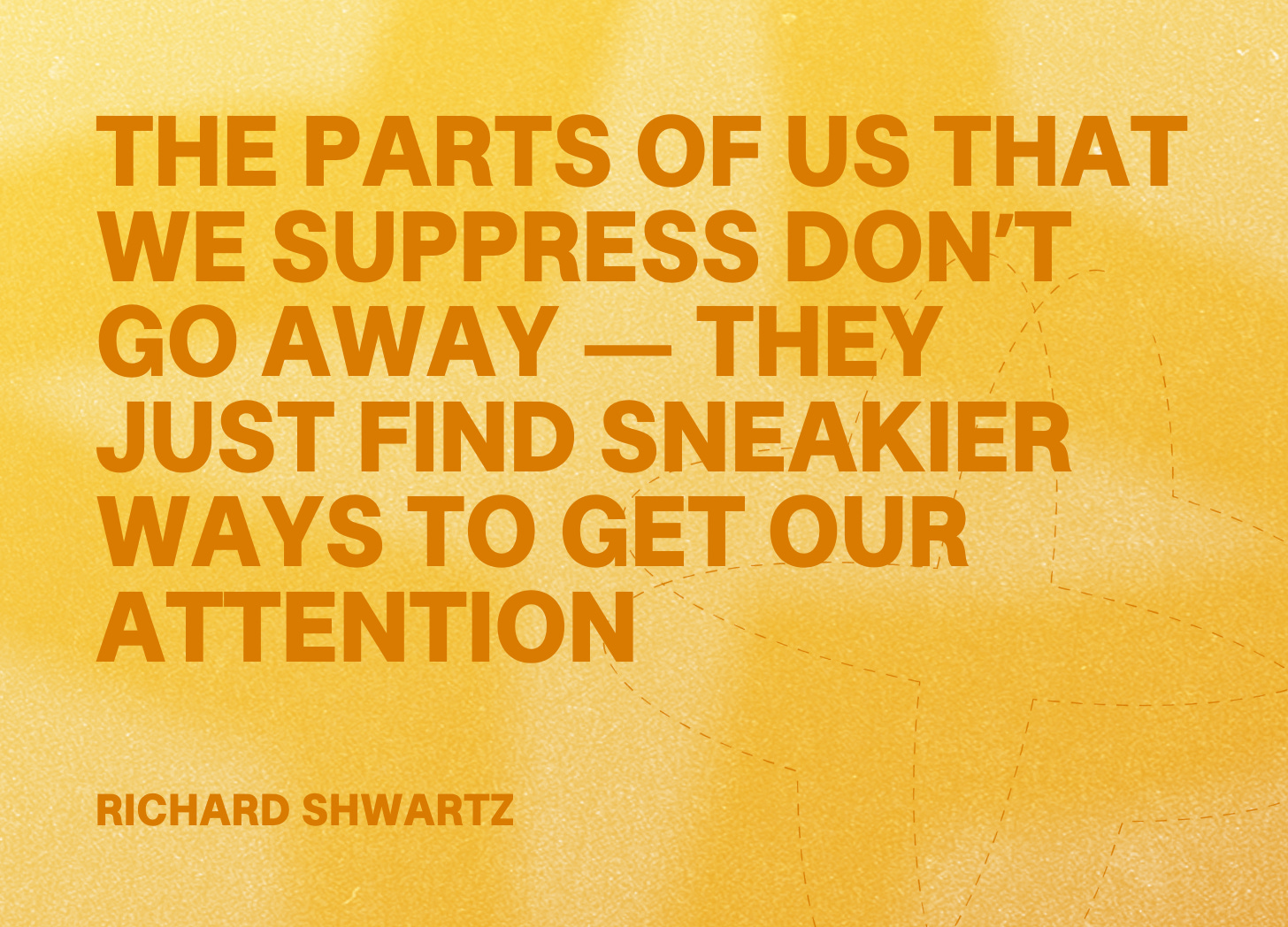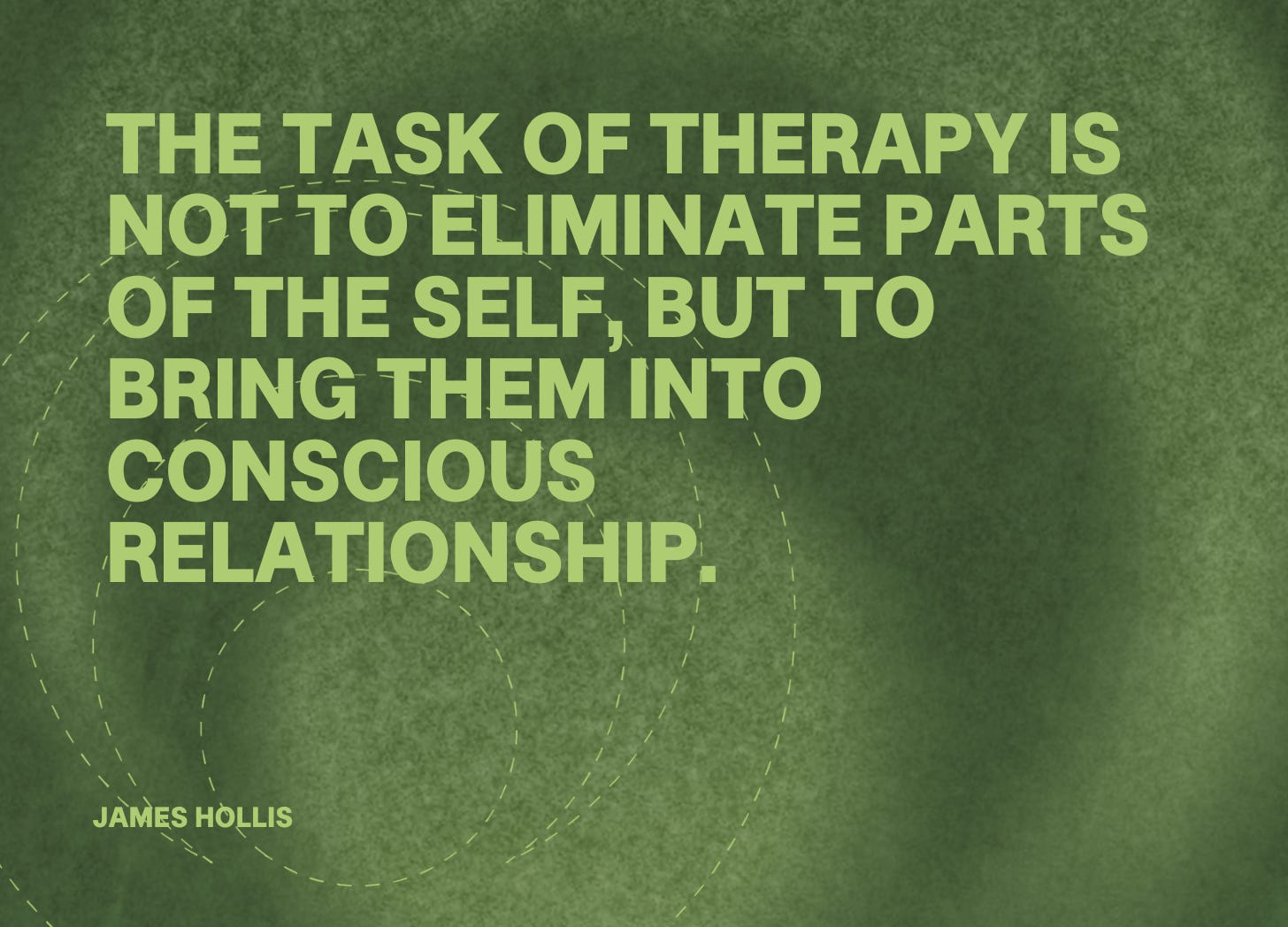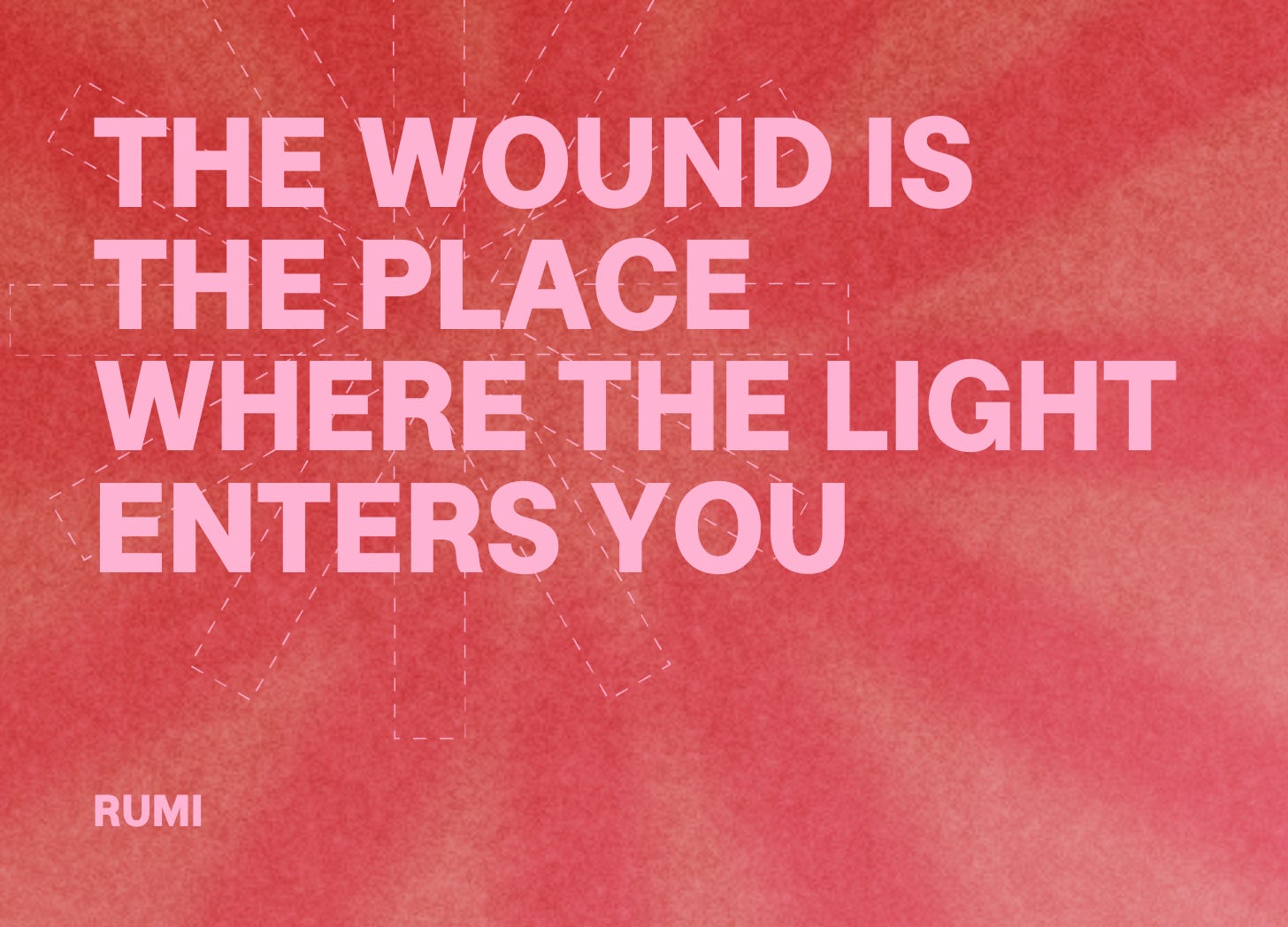How your shadow shows up
Introduction to Shadow Work - Part 2
Thanks for being here. This is the second lesson in my free Introduction to Shadow Work course. If you have landed here without reading the previous lessons, I recommend you start from the beginning. Subscribe below, and I’ll send you links to all the lessons in the course.
In Lesson 1, we discussed what the shadow is. Today, let's discuss how it shows up. I guarantee your shadow influences your life in ways you haven't noticed.
Let me tell you about David.
David is a successful marketing director. Smart guy, good heart, generally has his shit together. But there's this one colleague - let's call him Mark - who drives David bananas.
Mark is confident, speaks up in meetings, takes credit for his ideas, and appears comfortable taking space. Whenever Mark talks, David feels his jaw clench and his chest tighten. He mentally catalogues all the ways Mark is "arrogant" and "self-centred."
After one particularly frustrating meeting, David came home and ranted to his partner for twenty minutes about how Mark "always has to be the centre of attention." His partner listened, then asked a simple question: "What is it about him that bothers you so much?"
David paused. And in that pause, something shifted.
David grew up in a house where "good boys" were seen and not heard. He learned that taking up space was selfish and that confidence was conflated with arrogance. So David learned to shrink, to defer, to make himself small.
The part of him that wanted to speak up, take credit, and be confident? That got buried in the shadow.
Every time David saw Mark embodying those qualities, his shadow protested.
"That's not allowed! That's dangerous! That will make people reject you!"
Mark wasn't the problem. Mark was the mirror.
How shadow projection works
This is how your shadow hijacks your life without you knowing:
Whatever you've disowned in yourself, you'll either be triggered by or obsessed with in others.
The colleague who's "too aggressive"? Maybe they have the assertiveness you rejected. The friend who's "too needy"? Perhaps they express the vulnerability you've buried. The person who's "too confident"? They might be showing you the self-assurance you've been afraid to claim.
Your strong reactions to other people are rarely about them. They're about the parts of yourself you've been running from.
This isn't just about negative reactions. Sometimes we're fascinated by people who embody our disowned gifts:
The woman who's unapologetically sexual when you've buried your sensuality
The man who sets boundaries effortlessly when you've learned to people-please
The friend who pursues their dreams boldly when you've silenced your ambition
The same mechanism is at play whether you're triggered or fascinated: You're seeing a disowned part of yourself reflected back.
Three ways your shadow shows up
1. Emotional Hijacking: You react too strongly to situations that shouldn't warrant that intensity. Road rage over a minor traffic incident. Fury at your partner for leaving dishes in the sink. The devastation of not receiving a text back immediately.
You know your shadow is activated when your emotional response is bigger than the situation warrants. Something in the present moment has touched an old wound, and suddenly you're not responding to what's happening now, you're responding to what happened then.
2. Repetitive Patterns: You repeatedly find yourself in the same situations. Same type of toxic relationship. Same work drama. Same financial struggles. Same family dynamics.
Your shadow doesn't learn new tricks. It keeps running the same protective programs from childhood, even when they no longer serve you.
3. Self-Sabotage: You undermine yourself just when things are going well. You pick fights right before important events. You procrastinate on projects you care about. You push away people who are good for you.
The parts of yourself you haven't accepted will act out in ways you can't control. Your buried shame will find ways to prove you're not worthy of good things. Your disowned anger will find ways to destroy what you've built.
Why this happens
Your shadow developed as a survival mechanism. As a child, certain parts of you felt dangerous. They threatened your safety, your sense of belonging, and your love, so your psyche split them off and buried them.
The part of you that learned "anger is dangerous" will keep you from setting boundaries. The part that learned "needs are burdens" will keep you from asking for help. The part that learned "confidence is arrogance" will keep you small and invisible.
The cost of unconscious living
When your shadow runs the show, you're not living your life to the full.
Your unconscious patterns are living you.
You feel like you're:
Pretending all the time
Walking on eggshells around your own emotions
Stuck in the same loops despite your best efforts
Exhausted from managing your image
Confused about why you do things that go against your own interests
The parts of yourself you haven't faced will leak into your relationships, parenting, work, and health. They'll influence your decisions in ways you can't see or control.
The gift of conscious living
The good news is that once you can see and embrace your shadow parts, they lose power over you.
When David realised his irritation with Mark was due to his disowned confidence, he could start making different choices, from a place of conscious control. He could see the pattern, feel the old childhood programming activating, and choose a different response instead of being hijacked.
He started speaking up more in meetings, taking credit for his ideas, and practising taking up space. As he reclaimed these qualities in himself, Mark stopped triggering him.
Shadow work offers the ability to respond instead of react, to choose instead of being chosen for, and to live consciously instead of living by unconscious patterns.
Your shadow practice
Here's your assignment (and yes, it might feel uncomfortable - that's the point):
Notice your strong reactions.
For the next week, pay attention to:
When you feel triggered, irritated, or obsessed with someone
When your emotional response feels bigger than the situation warrants
When you find yourself judging someone harshly
When this happens, pause and ask yourself:
What quality in this person am I reacting to?
Do I have this quality but hide it?
Do I wish I had this quality but judge myself for wanting it?
What would it look like if I owned this quality in myself?
Don't try to fix or change anything yet. Just notice. Just get curious. You are aiming for conscious awareness, not perfection.
As you do this practice, be gentle with yourself. You're looking at parts of yourself you've been avoiding for good reasons. Go slowly. There's no rush.
And remember: You're not broken. You're not bad. You're just human, carrying human wounds and human gifts.
In the next lesson, we will explore where these patterns came from - the origin story of your shadow. We'll examine how your childhood survival strategies are still running your adult life, and why understanding this can set you free.
You're already braver than you think for starting this journey.
Stay curious.
P.S. If you notice yourself having big reactions as you do this practice, that's completely normal. You're shining light into places that have been dark for a long time. If you feel overwhelmed, slow down. If you need professional support, seek it.
Signs to pause and seek support:
Feeling overwhelmed by emotions you can't manage
Having thoughts of self-harm
Experiencing panic attacks or severe anxiety
Feeling disconnected from reality


